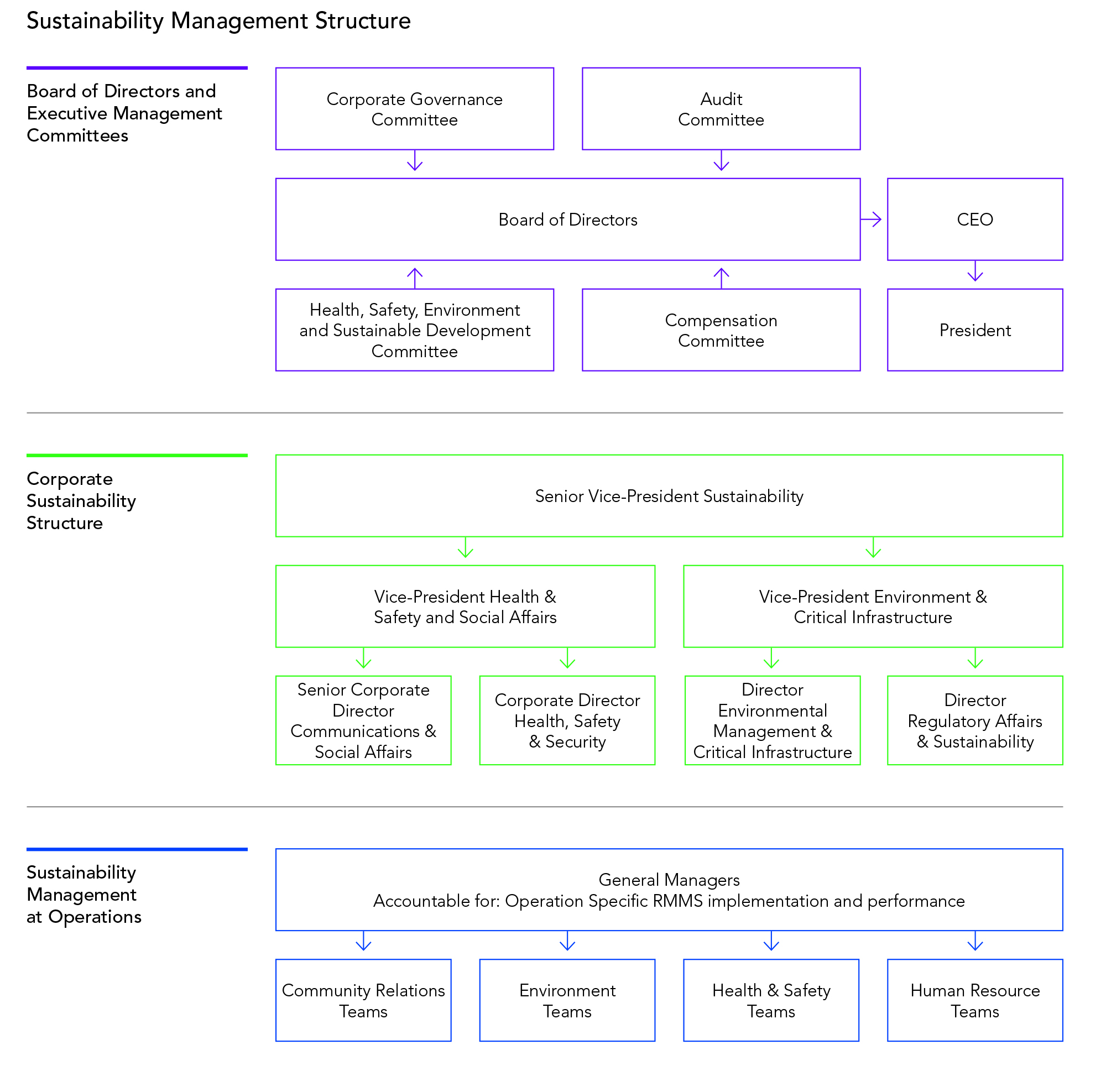Sustainability Management Structure

Sustainability is integrated throughout the management structure at the Board, executive and operational levels.
At the Board level, sustainable development matters are presented to the Health, Safety, Environment and Sustainable Development (HSESD) Committee of the Board of Directors at each quarterly Board meeting.
At the executive level, corporate oversight and implementation of the sustainable development program are the direct responsibility of the Senior Vice-President, Sustainability and the Corporate Sustainability team.
At the operational level, processes are in place to ensure that sustainable development matters, along with risk assessment and mitigation measures, are integrated into the day-to-day management of our business.